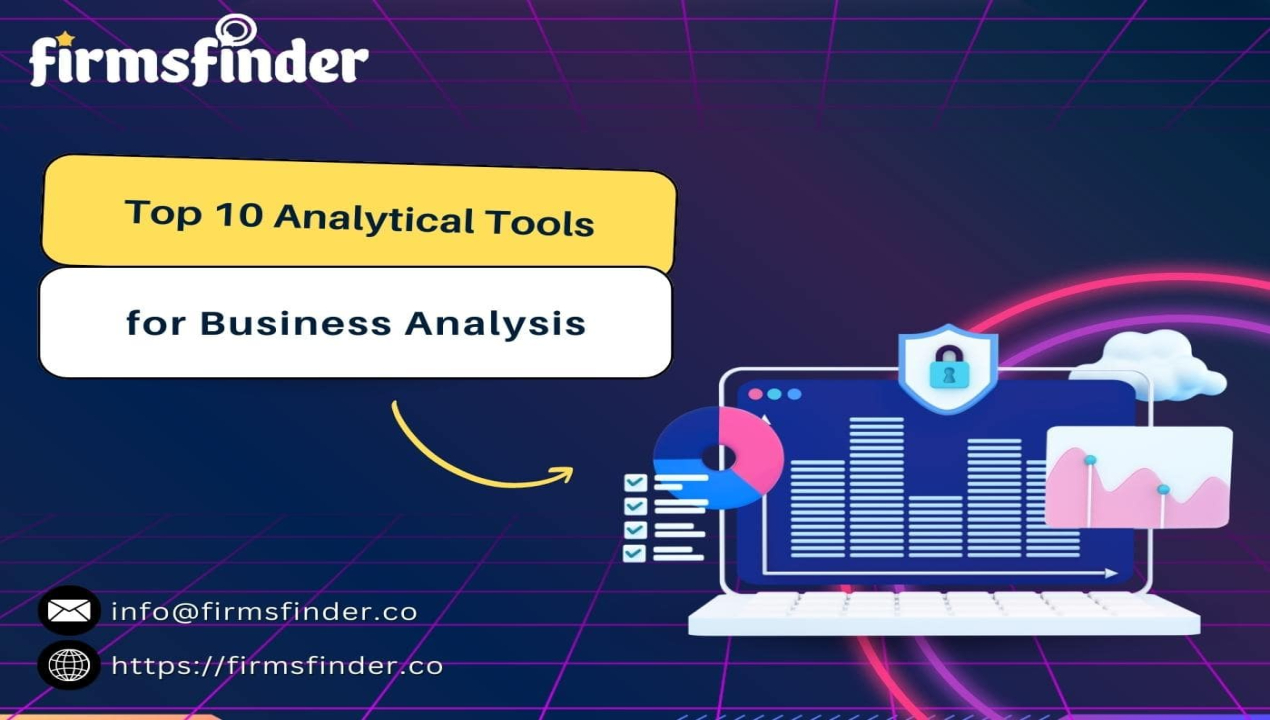
Top 10 Analytical Tools for Business Analysis
In today’s world, businesses face the challenge of extracting insights from vast amounts of data. To overcome this challenge, organizations rely on analytical tools that can convert raw data into actionable intelligence. These tools are crucial in business analysis, enabling tasks such as trend identification and informed decision-making. In this article, we will explore the top 10 business analytical tools that are transforming data analysis for businesses. Whether you’re a small startup or a multinational corporation, incorporating these tools into your business strategy can give you a competitive edge in a rapidly evolving market. Let’s delve into the world of data-driven decision-making and explore the business intelligence tools driving business success.
Importance of Business Analytics
Business analytics have become an essential part of decision-making processes in today’s business landscape. Its significance lies in its ability to empower organizations to effectively utilize their data, enabling them to make well-informed and strategic choices. Through the application of advanced statistical models, predictive algorithms, and data visualization techniques, business analytics provides valuable insights into market trends, customer behavior, and operational efficiency. These insights can drive improvements in critical areas like marketing campaigns, supply chain management, and financial forecasting. Additionally, business analytics aids organizations in identifying risks, recognizing opportunities, optimizing resource allocation, and enhancing overall performance. In today’s highly competitive environment, the capability to extract meaningful insights from data has become a pivotal factor in achieving sustainable growth and maintaining a competitive edge.
Business Analytics Tools Used by Companies Today
Today it experts are increasingly relying on a wide range of business analytics tools to harness the power of their data. These tools offer advanced functionalities that enable organizations to uncover valuable insights and make data-driven decisions. Here are some of the most commonly used business analytics tools:
1. Tableau
Tableau is a popular data visualization tool that allows users to create interactive dashboards and reports. It simplifies complex data sets, making it easier to identify trends, patterns, and correlations.
2. Microsoft Power BI
Power BI is a comprehensive business intelligence platform that provides data visualization, data modeling, and interactive reporting capabilities. It seamlessly integrates with various data sources, enabling users to analyze and share insights effectively.
3. Google Analytics
This web analytics tool is widely used for tracking website traffic, user behavior, and conversion rates. It provides valuable insights into customer interactions, helping businesses optimize their online presence and marketing strategies.
4. SAS
SAS offers a suite of business intelligence tools that encompass data management, data mining, predictive modeling, and statistical analysis. It enables organizations to uncover patterns, detect anomalies, and generate accurate forecasts.
5. Python and R
These programming languages are popular choices for data analysis and statistical modeling. With extensive libraries and packages, Python and R provide flexibility and customization options for performing advanced analytics tasks.
6. IBM Watson Analytics
Watson Analytics leverages artificial intelligence to analyze complex data sets and generate predictive insights. It offers natural language processing capabilities, making it accessible to users without extensive technical knowledge.
7. Apache Hadoop
Hadoop is an open-source framework for distributed processing and storage of large datasets. It enables companies to handle big data and perform parallel processing, facilitating advanced analytics at scale.
8. Alteryx
Alteryx is a self-service analytics platform that allows users to prepare, blend, and analyze data without the need for coding. It streamlines data integration and cleansing processes, enabling faster insights generation.
9. QlikView
QlikView is a business intelligence tool that provides intuitive visualizations and interactive dashboards. It offers associative data modeling, allowing users to explore data from various angles and make real-time discoveries.
10. Salesforce Einstein Analytics
Built on the Salesforce platform, Einstein Analytics leverages AI to deliver predictive and prescriptive insights. It enables businesses to analyze customer data, sales performance, and marketing effectiveness to drive revenue growth.
These business analytics tools empower organizations to extract actionable insights, optimize processes, and gain a competitive edge in today’s data-centric business landscape. By leveraging the power of these tools, companies can unlock the true potential of their data and drive informed decision-making across all levels of the organization.
Conclusion
In conclusion, the top 10 analytical tools for business analysis have revolutionized the way organizations approach data analysis. Business analytics plays a vital role in enabling businesses to effectively utilize their data and make well-informed decisions. These tools offer advanced features that simplify complex data sets, visualize information, and provide valuable insights into market trends, customer behavior, and operational efficiency. By integrating these tools into their strategies, businesses can streamline processes, identify risks and opportunities, and improve overall performance. In today’s competitive business environment, extracting meaningful insights from data is essential for sustainable growth and maintaining a competitive edge. Leveraging these analytical tools empowers organizations to unlock the full potential of their data and drive data-driven decision-making across the company.
Faq –
1. Which tool is best for business analyst?
The best tool for a business analyst varies depending on specific requirements, the type of data, and the organization’s goals. However, there are several commonly used tools in the industry. Tableau is known for its strong data visualization capabilities, Microsoft Power BI offers comprehensive business intelligence functionalities, and SAS provides a suite of analytics tools for data management and modeling. Ultimately, the ideal tool for a business analyst would be the one that suits their specific needs and allows them to analyze data effectively and extract valuable insights.
2. What is the most used business analytics tool?
Tableau is one of the most widely used business analytics tools in the industry.
3. Is Jira a business analyst tool?
Understanding the objective, organising the stories, and ensuring that a thorough description of the solution is supplied are all ways that business analysts in Jira help the team grow the product backlog.
Dec 14 2024
